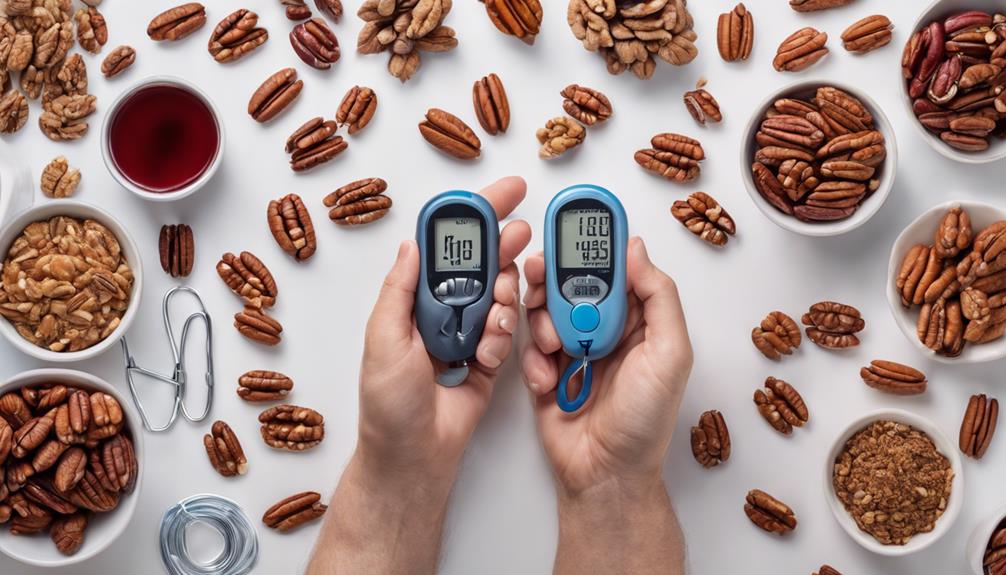Have you ever thought about Boca Seca Diabetes? Dry mouth, which is a common problem for people with diabetes, can cause discomfort and other issues.
As we explore the causes and management of this condition, it becomes evident that understanding its implications goes beyond the surface. Let's uncover the importance of addressing Boca Seca Diabetes and its significant role in overall health maintenance.
Key Takeaways
- Dry mouth in diabetes leads to dental issues.
- Proper hydration and oral hygiene are crucial.
- Early intervention is vital to prevent complications.
- Managing blood sugar levels helps reduce dry mouth symptoms.
Understanding Boca Seca Diabetes
To understand Boca Seca Diabetes, one must grasp the intricate relationship between xerostomía and diabetes, where the sensation of dryness in the mouth stems from reduced saliva production. Dry mouth, a common symptom of diabetes, can lead to various oral health issues due to its association with high blood sugar levels. In individuals with diabetes, the condition can disrupt the normal production of saliva, creating an environment conducive to increased plaque accumulation and bacterial growth in the mouth.
Preventing and treating dry mouth in diabetes is crucial to maintaining overall health. Failure to address this issue adequately can exacerbate dental problems, such as cavities, gum disease, and difficulties in eating and speaking. By actively managing dry mouth through proper oral hygiene practices, hydration, and potentially medication, individuals can mitigate the risks associated with this condition and improve their quality of life. Early intervention and ongoing monitoring are essential to ensure that dry mouth doesn't progress into more severe oral health complications.
Causes of Dry Mouth in Diabetes

Understanding the underlying causes of dry mouth in diabetes sheds light on the multifaceted factors contributing to this common symptom in individuals with the condition. When it comes to dry mouth in diabetes, several factors can play a role:
- High Blood Sugar Levels: Elevated blood sugar levels can lead to dehydration, resulting in dry mouth symptoms.
- Medications: Some medications used to manage diabetes can have dry mouth as a side effect, further exacerbating the issue.
- Nerve Damage: Nerve damage affecting the salivary glands can reduce saliva production, contributing to dry mouth in individuals with diabetes.
- Autoimmune Conditions: Autoimmune conditions that target the salivary glands may impact saliva flow, causing dry mouth in diabetic patients.
In addition to these factors, poorly controlled diabetes itself can directly impact saliva production, leading to persistent dry mouth symptoms. Understanding these causes can help individuals better manage their diabetes and alleviate the discomfort associated with dry mouth.
Managing Boca Seca Symptoms
Effective management of Boca Seca symptoms in diabetes involves strategic hydration, utilization of sugar-free products to stimulate saliva production, and avoidance of certain beverages that can exacerbate dry mouth discomfort. Staying hydrated by drinking water regularly throughout the day is crucial to combat dry mouth and prevent dehydration. Sugar-free products like gum or lozenges can help increase saliva flow, relieving the discomfort associated with dry mouth. It's important to steer clear of sugary, caffeinated, or acidic drinks as they can worsen dry mouth symptoms. Additionally, regular dental check-ups are essential for individuals with diabetes to maintain good oral health and address any issues related to dry mouth promptly. Proper management of blood sugar levels plays a significant role in reducing dry mouth symptoms and associated risks. By implementing these strategies, individuals can effectively manage Boca Seca symptoms and improve their overall well-being.
| Hydration | Sugar-Free Products | Dental Check-Ups |
|---|---|---|
| Drink water regularly | Use sugar-free gum | Schedule regular visits |
| throughout the day | or lozenges | to the dentist |
Home Remedies for Dry Mouth

Utilizing sugar-free gum or lozenges can effectively stimulate saliva production in individuals experiencing dry mouth symptoms associated with diabetes. Drinking water regularly throughout the day is essential for managing dry mouth.
Avoiding tobacco products and alcohol can help prevent worsening dry mouth in individuals with diabetes. Using a humidifier in the bedroom can alleviate dry mouth discomfort during sleep for those with diabetes.
Maintaining good oral hygiene practices, such as regular brushing and flossing, is crucial for managing dry mouth effectively. These home remedies play a significant role in alleviating the discomfort caused by dry mouth in individuals with diabetes.
Seeking Medical Advice for Boca Seca
Upon experiencing persistent dry mouth symptoms associated with diabetes, it's crucial to seek medical advice promptly to address potential underlying health issues and ensure effective treatment management.
Dry mouth, also known as boca seca, in diabetes can be a sign of complications that require attention from a healthcare provider. Changes in saliva production, oral sores, or difficulties in eating should prompt seeking medical help to prevent further complications.
Regular dental check-ups play a vital role in monitoring oral health and addressing dry mouth symptoms in individuals with diabetes. Worsening dental problems, along with difficulties in speaking or swallowing, and the presence of oral infections should all be considered red flags necessitating immediate medical assistance for boca seca related to diabetes.
Frequently Asked Questions
What Does a Diabetic Dry Mouth Feel Like?
When we talk about what a diabetic dry mouth feels like, it's important to note that individuals with this condition often experience a rough, sticky sensation in their mouths, along with constant thirst and difficulties with chewing, swallowing, and speaking.
Dry, cracked lips, mouth pain, and sores are common, as well as bad breath and an increased risk of dental issues like cavities. The hallmark symptom is a dry, sticky feeling in the mouth.
What Is Diabetic Tongue?
Diabetic tongue, or glossitis, is an inflammation of the tongue commonly seen in individuals with diabetes. Symptoms include redness, swelling, a smooth texture, and a burning sensation. Causes may involve high blood sugar levels, nutrient deficiencies, infections, or autoimmune reactions.
Proper diabetes management, good oral hygiene, and addressing nutritional deficiencies are vital. Early detection and treatment are crucial as diabetic tongue can impact taste, speech, and oral health.
What Does Diabetes Mouth Taste Like?
Diabetes can cause a range of tastes in the mouth, such as bitter, metallic, sweet, or fruity, which vary based on blood sugar levels and saliva composition. Dry mouth and alterations in taste sensitivity are frequent symptoms as diabetes affects saliva production. Various factors like blood sugar regulation, hydration levels, and oral cleanliness can affect taste fluctuations. Lingering unpleasant tastes may be linked to dryness or acidity. Monitoring these taste variations can offer valuable information for managing diabetes and maintaining good health.
What Are the Oral Symptoms of Diabetes?
We present the oral symptoms of diabetes: dry mouth, increased thirst, frequent gum infections, slow wound healing, and a burning mouth sensation.
Diabetes can reduce saliva flow, causing dryness and swallowing difficulties. It raises susceptibility to infections like thrush due to elevated blood sugar levels weakening the mouth's immune response.
Dry mouth can lead to halitosis as reduced saliva limits cleansing and antibacterial properties. Uncontrolled diabetes may result in periodontal disease, gingivitis, and increased tooth decay risk.
Conclusion
In conclusion, managing Boca Seca Diabetes is essential for overall oral health. By understanding the causes of dry mouth in diabetes and implementing home remedies, individuals can alleviate symptoms and prevent complications.
Remember, staying hydrated, practicing good oral hygiene, and seeking medical advice when needed are key steps in managing this condition. Let's take control of our oral health and combat Boca Seca Diabetes together.









